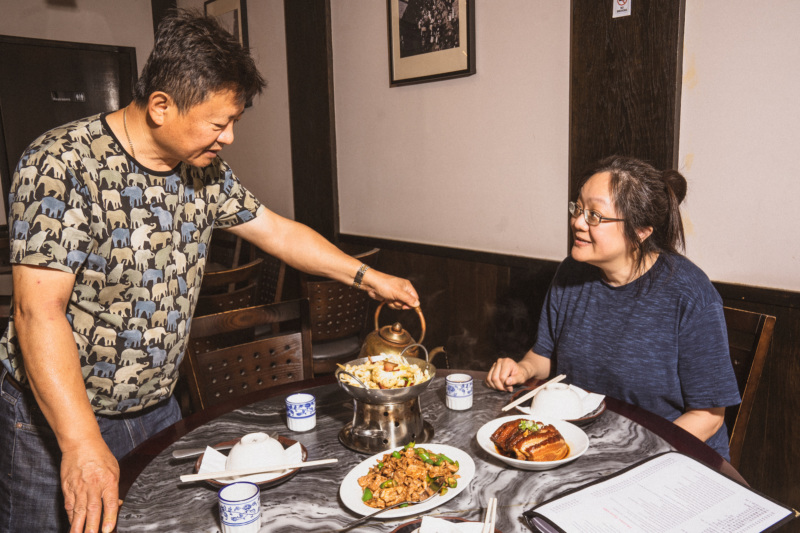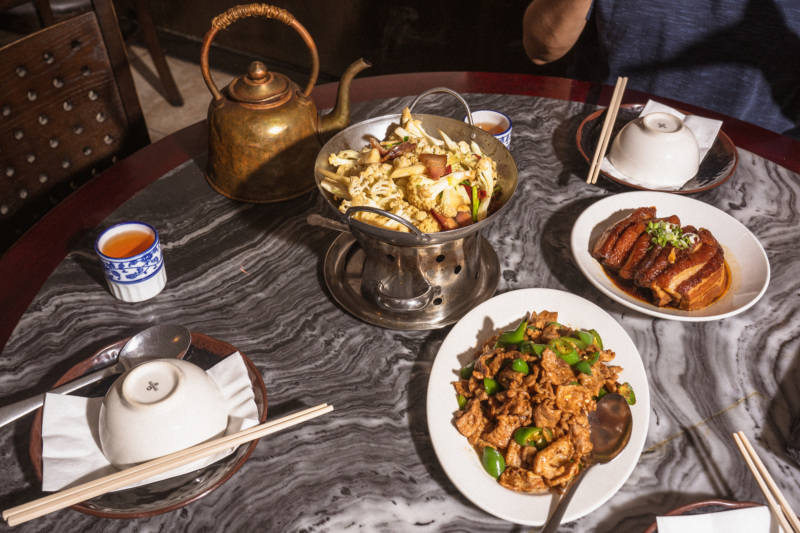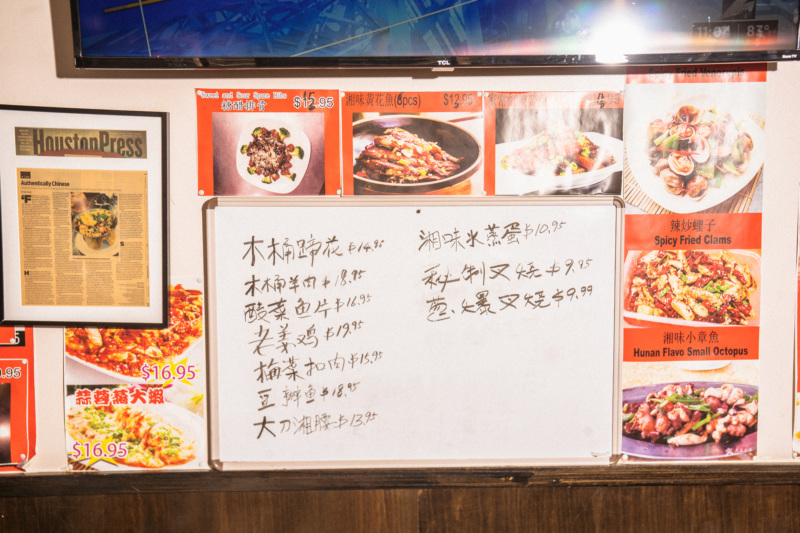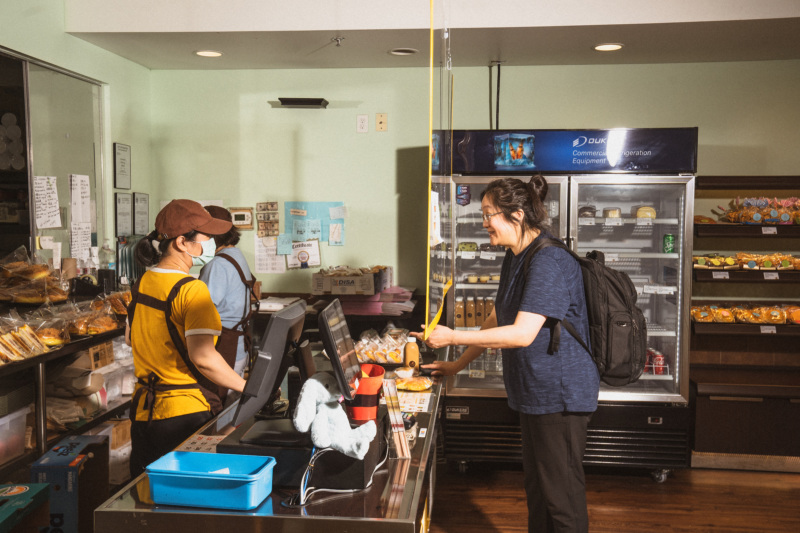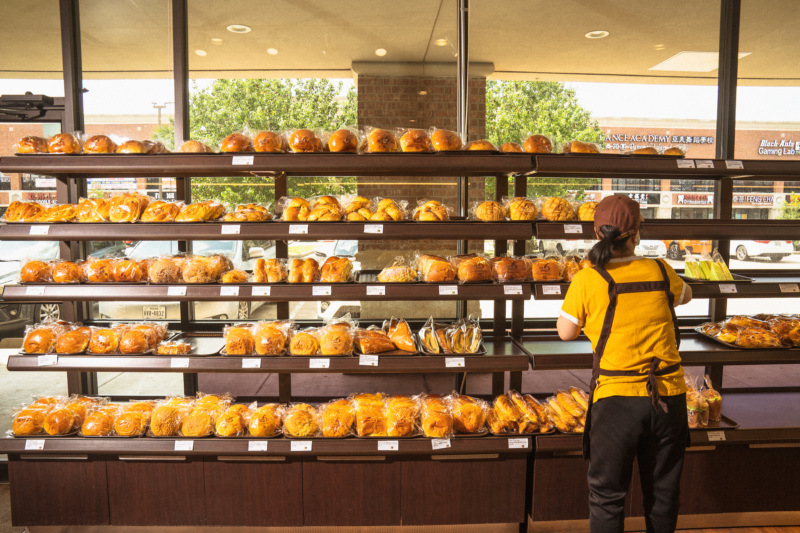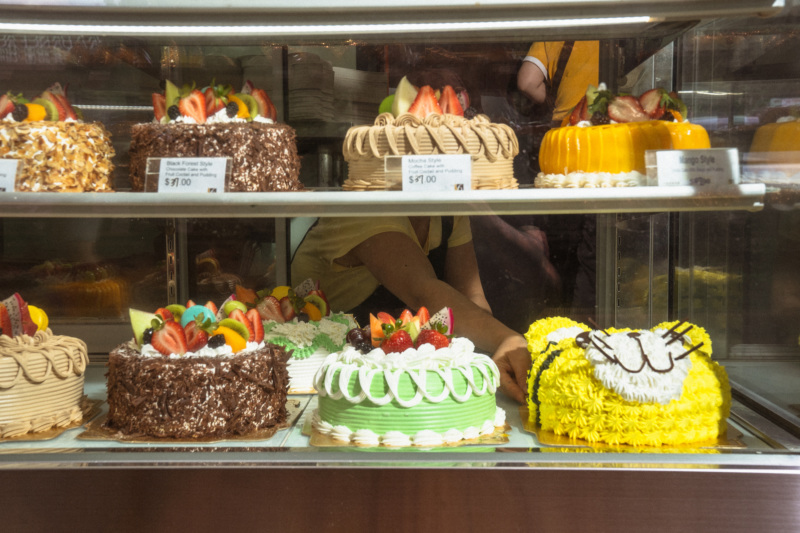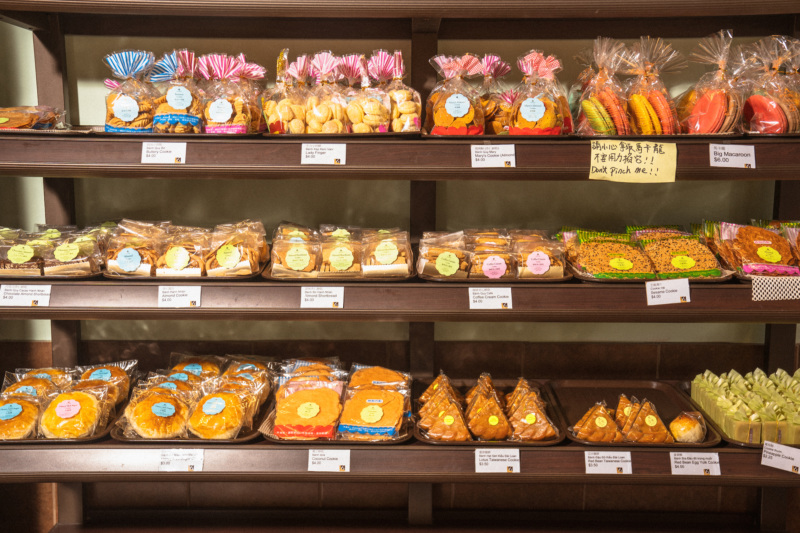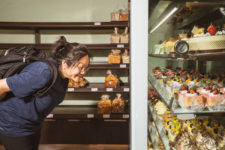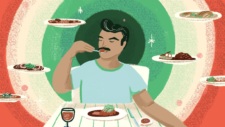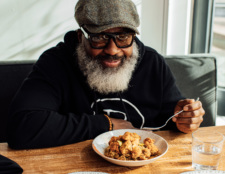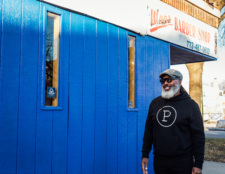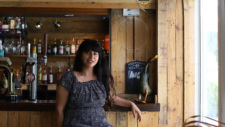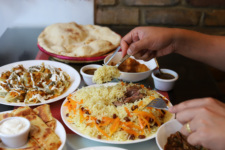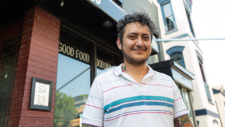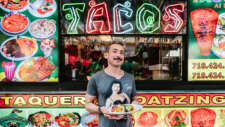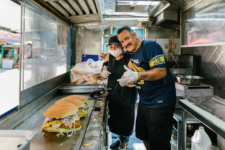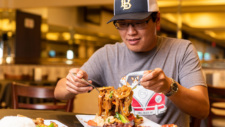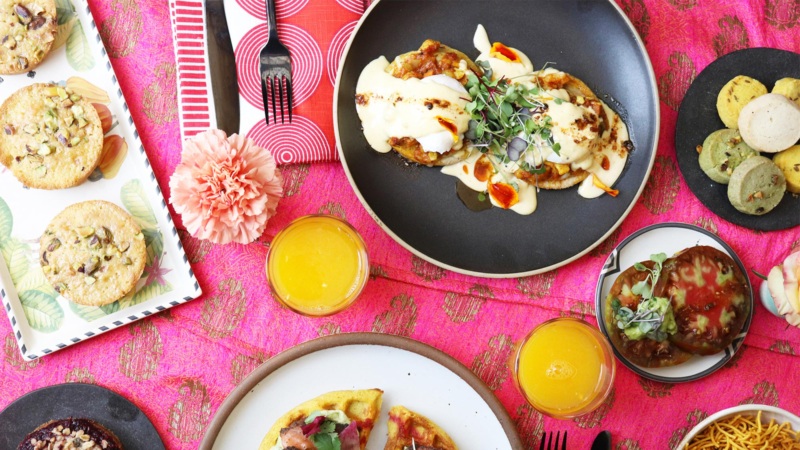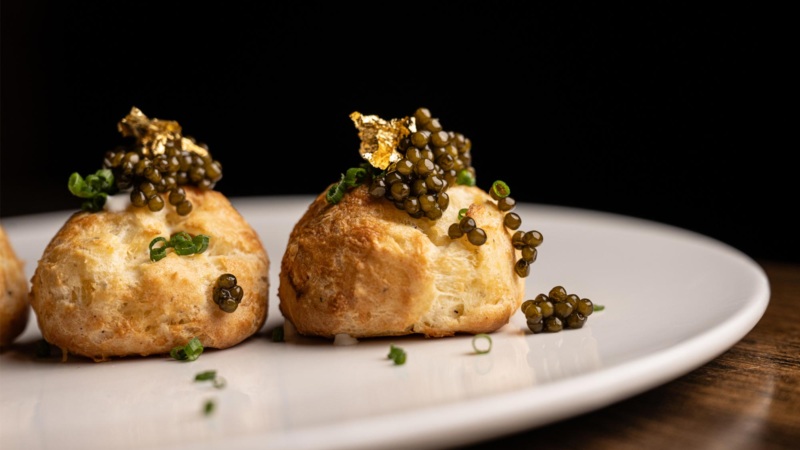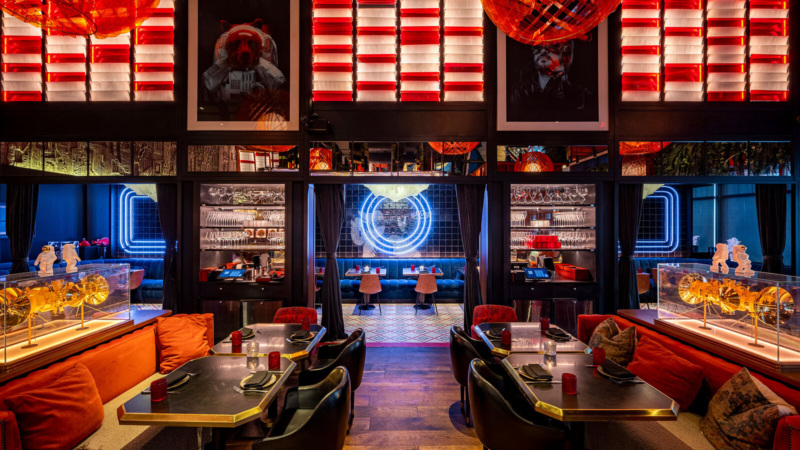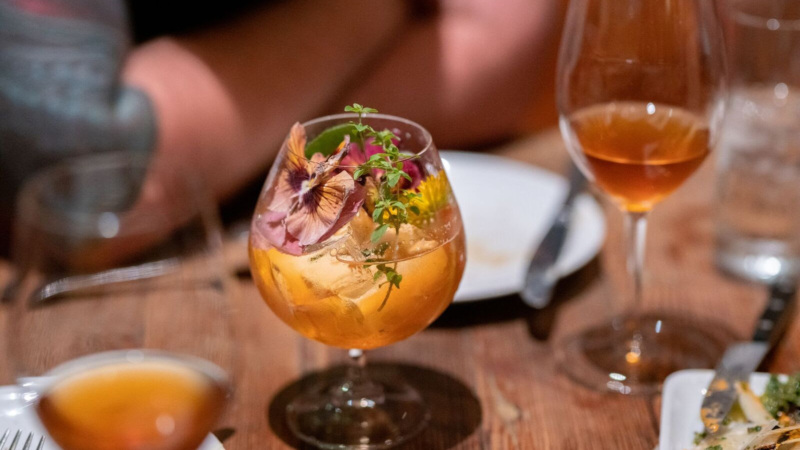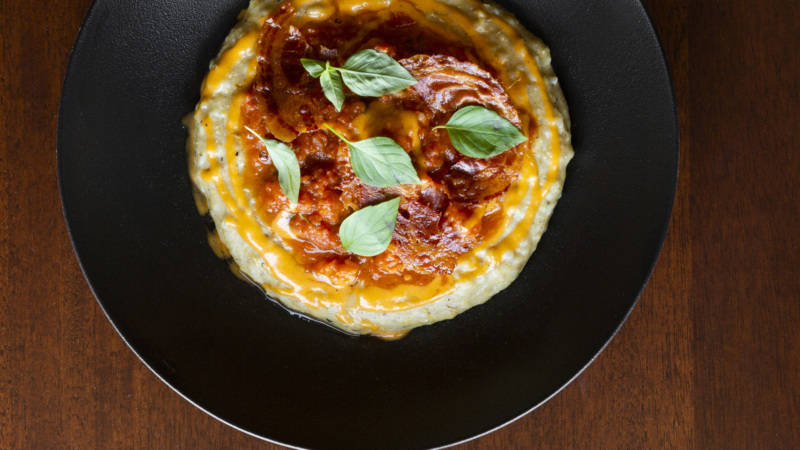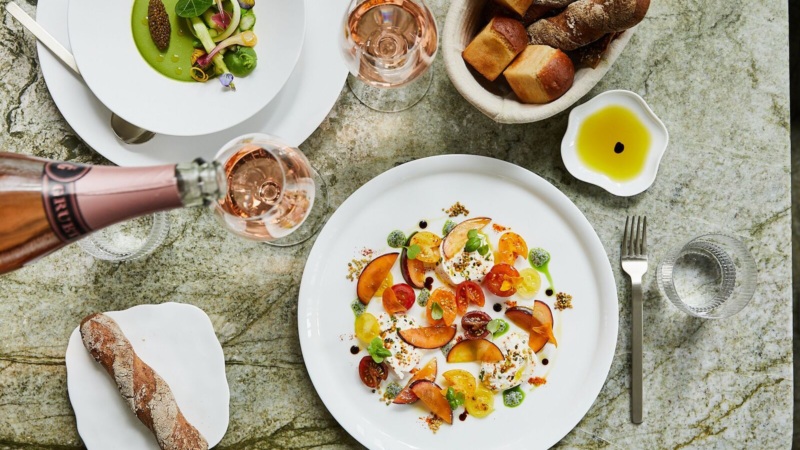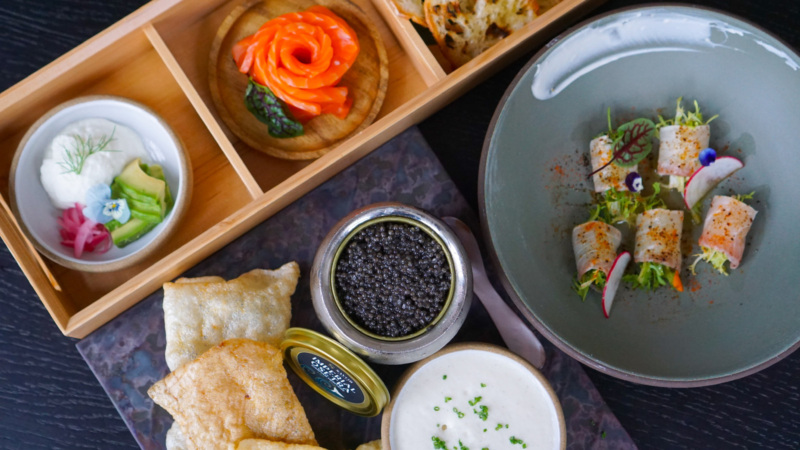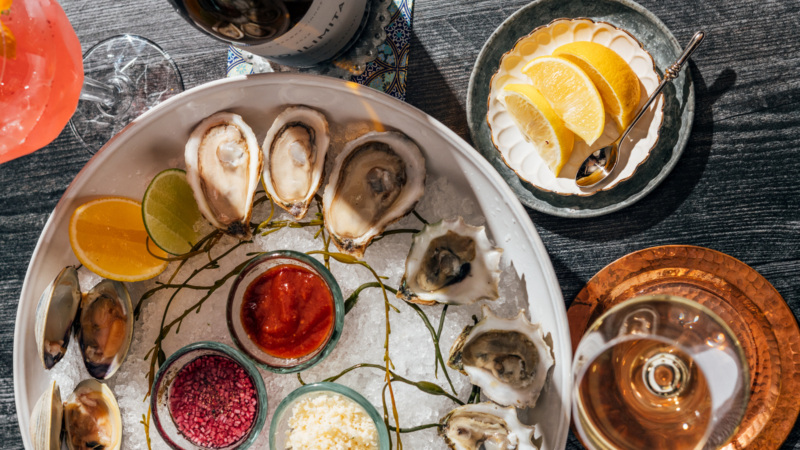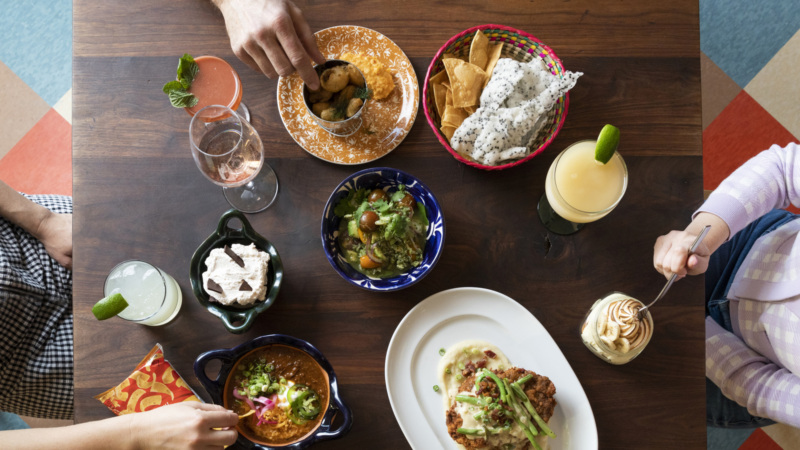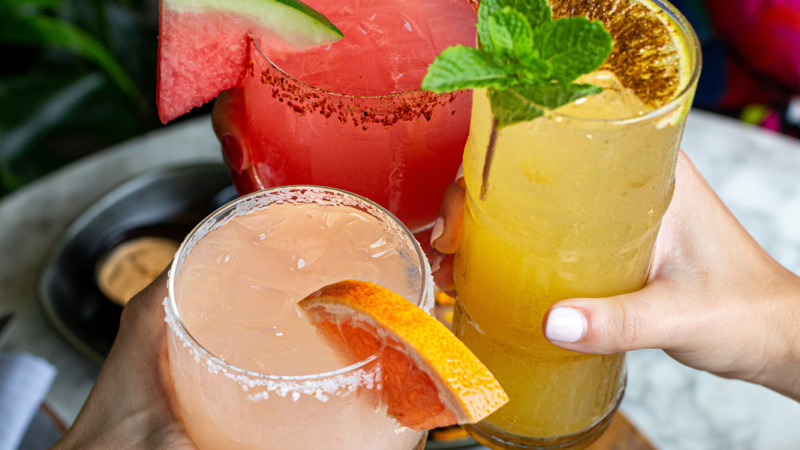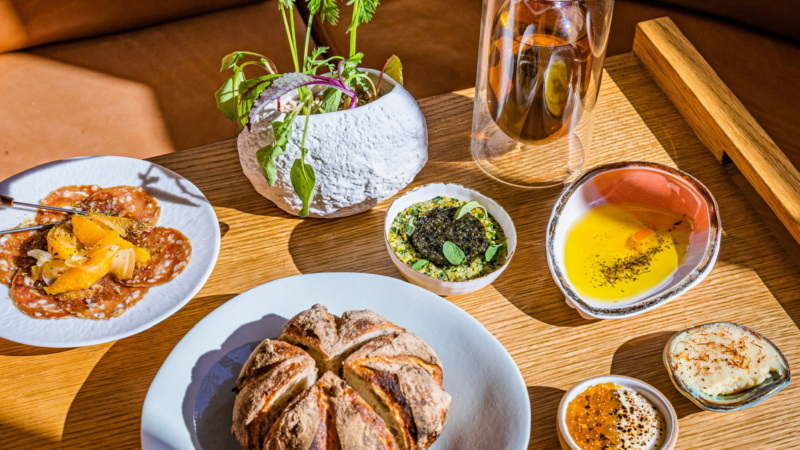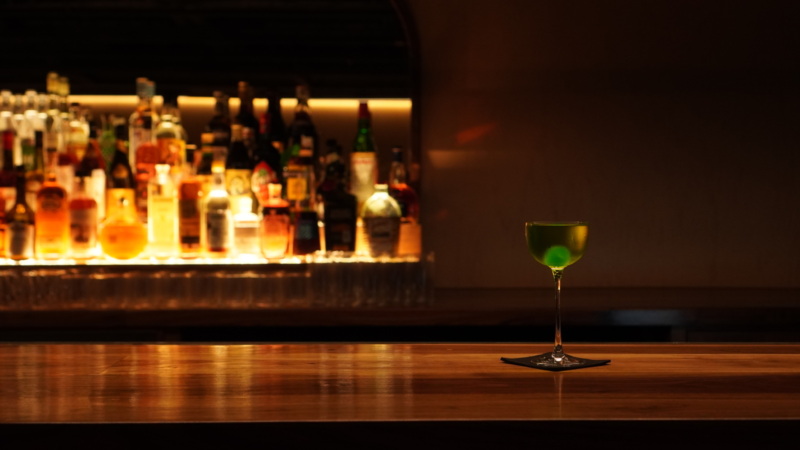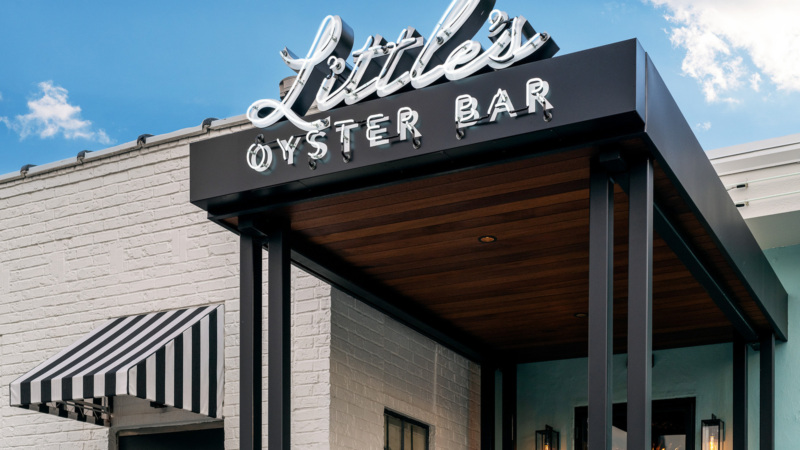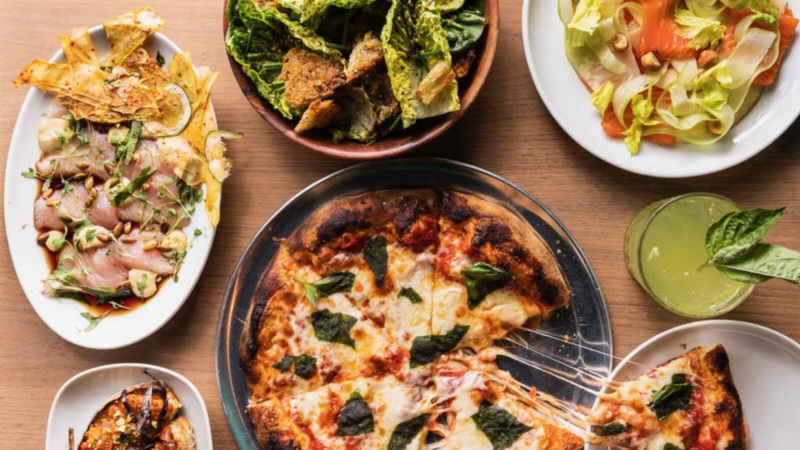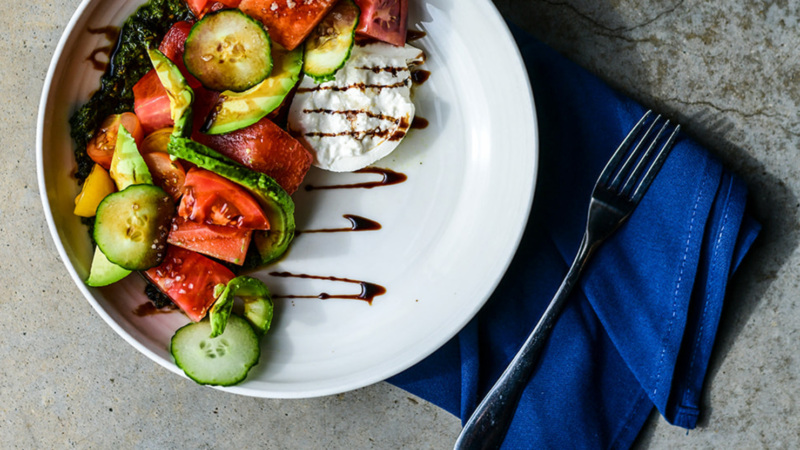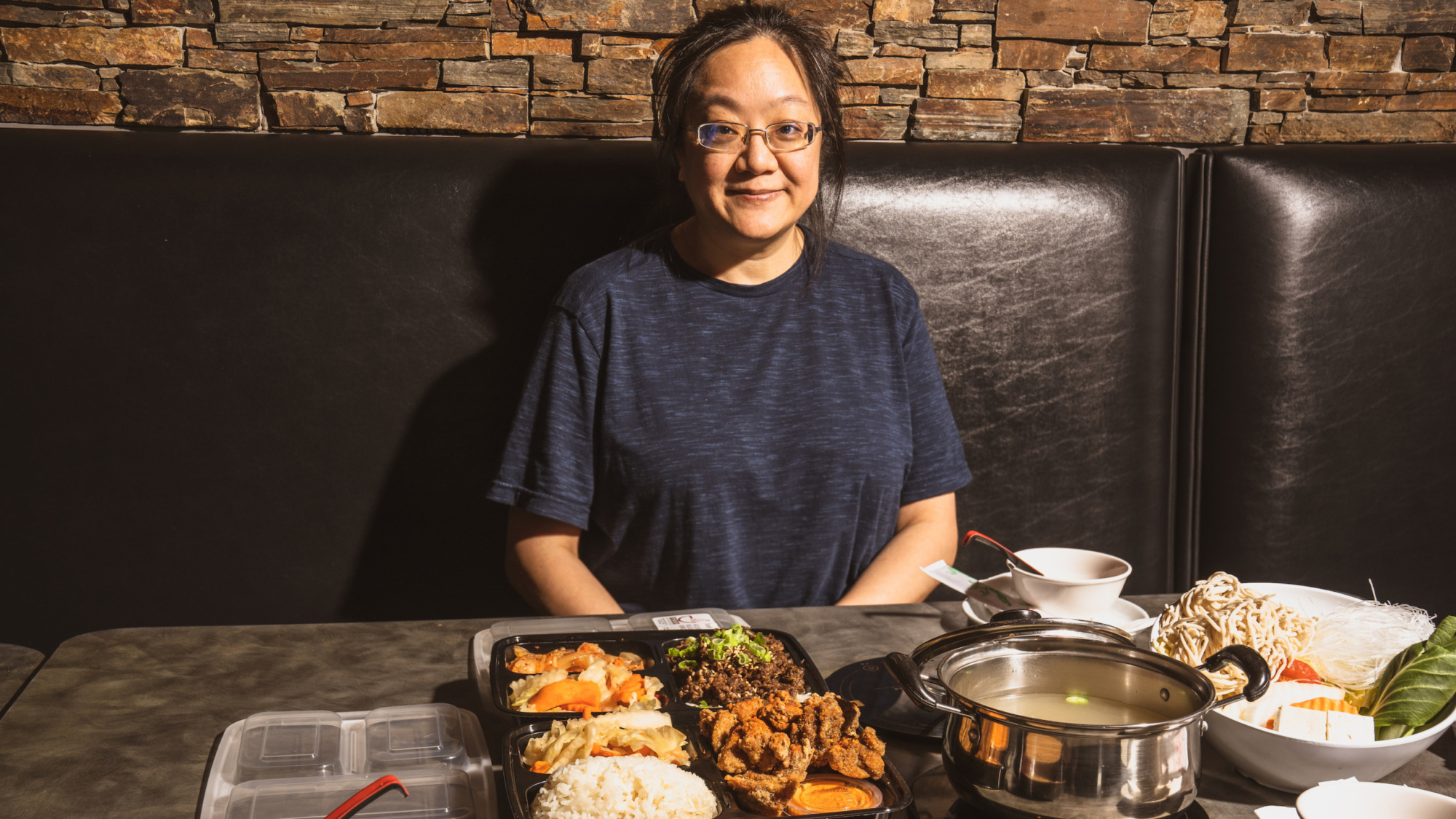
There’s No Place in America Quite Like Houston’s Asiatown
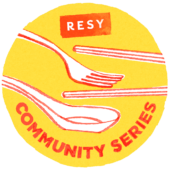 Debbie Chen is a co-owner of Shabu House in Houston’s Asiatown, as well as an immigration attorney and the program director for the Greater Houston chapter of the OCA (formerly known as the Organization of Chinese Americans). Her words follow.
Debbie Chen is a co-owner of Shabu House in Houston’s Asiatown, as well as an immigration attorney and the program director for the Greater Houston chapter of the OCA (formerly known as the Organization of Chinese Americans). Her words follow.
I came to be a part-owner at Shabu House in Houston’s Asiatown towards the end of 2019 after being a longtime customer.
Hot pot is one of my personal favorite foods. It’s comfort food. I grew up eating it. For holidays, my family would make some special dishes, and then we would just all have hot pot and sit down together. I tend to think that hot pot is a big thing in our family because it’s the easiest meal for adding more pairs of chopsticks. That’s what my mom and my grandmother used to say. If people stop by to give you good wishes, especially during Lunar New Year, then you can just say, “Hey, join us for dinner. It’s just an extra pair of chopsticks; have a seat.” It’s easy to be able to expand that space because you just add some more vegetables and add some more meat and noodles, and people are cooking it themselves. You’re not having to rush to the kitchen and make a new dish to add to the table.
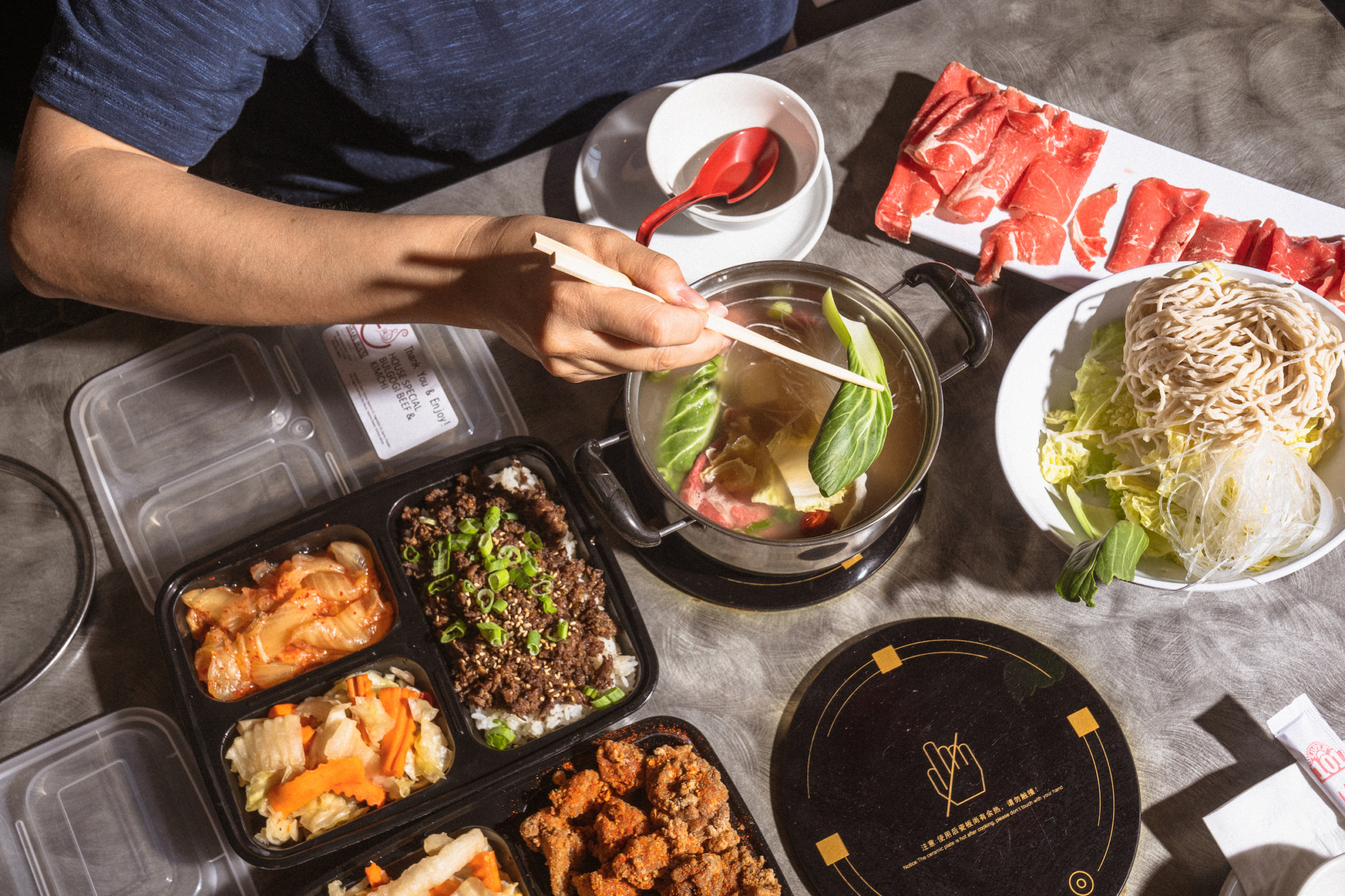
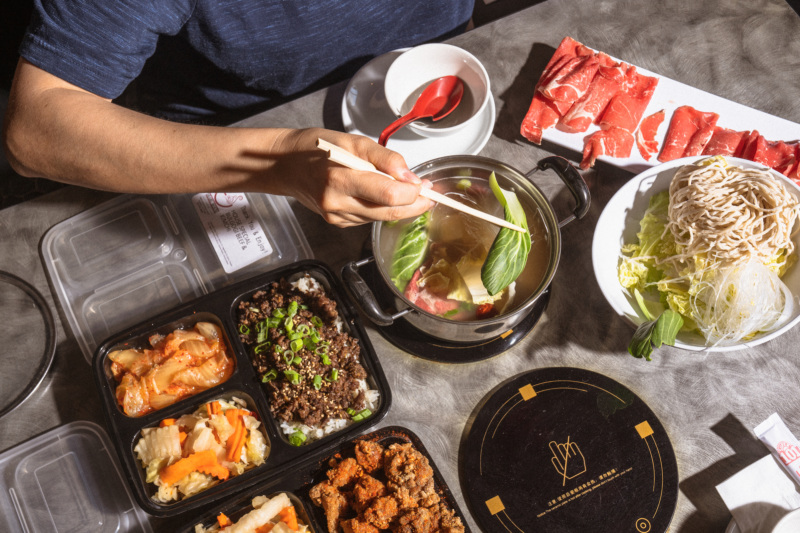
Houston’s Asiatown area, I think, is the best in the country. I’ve been to L.A. I’ve been to San Francisco. I’ve been to almost every other Asiatown in the major U.S. cities. What makes our Asiatown area so unique is that you can get such a diversity of food — Chinese, Vietnamese, Korean, South Asian and more — in this small driving distance. If you want great Indian food or shawarma, drive down a bit to Hillcroft. There are great places here in Asiatown that have Korean tofu soup that’s just so good. Or go to Koreatown in the Spring Branch area — I encourage people to go there too because then you have more diversity of Korean food. Go to these different places and try out something new. Each plaza has something great about it.
Shabu House is really great in that it’s Taiwan-style individual pots. In Taiwan, a lot of hot pot places offer individual pots so that way everyone can basically choose the soup that they feel like eating that day, and you just cook what you want. That made it very easy for me to just go — even when I didn’t have friends to eat with — and have a really great meal by myself. I was a customer there almost every week, and the owners asked, “Would you be interested in investing and becoming a part-owner?”
- A Restaurateur’s Guide to Eating in Houston’s Asiatown
- 13 of Houston’s Best Women-Led Restaurants
- The 15 Houston Dishes You Must Try
- Chinatowns Everywhere Are Suffering. In Oakland, a New Generation Has Answers.
- On the Resilience of Long Beach’s Cambodian American Community
- Hmong Food Isn’t a Cuisine. It’s a Philosophy.
At the time I was like, OK, this is doable because although I work for OCA and do my own thing, I could still be here on weekends and weekdays. My job is fairly flexible. I can bring my laptop pretty much anywhere to work. There was no difference between me sitting at a restaurant in the afternoon when there are no customers anyway, and sitting in an office space. More importantly, I had other partners who did have experience in restaurants, so that made me feel more comfortable.
Houston’s Asiatown area, I think, is the best in the country. I’ve been to L.A. I’ve been to San Francisco. I’ve been to almost every other Asiatown in the major U.S. cities.
The Asian American immigrant community starts small businesses at a faster rate than any other community. It’s not necessarily because we’ve wanted to be small business owners. There are plenty of people who immigrate to the U.S. with higher education credentials, or specialized skill sets — sometimes they start small businesses because they’re forced to, because they couldn’t get a job in mainstream America.
I am a child of immigrants. My parents came here from Taiwan as graduate students, and then afterwards stayed in the States. I was born in South Dakota and lived in Lincoln, Neb., until I was 11, when we moved to Houston’s Alief suburb, where Asiatown is situated. My mom had a small business and sponsored my grandmother to come here. My uncles on my father’s side also started small businesses when they came here.
My mom was a dentist who saved up enough money to open her own small practice. At 12 years old, I was the receptionist, the office manager, and the dental assistant. My mom had a full-time job somewhere else and worked at her own practice on weekday evenings and Saturdays, so every Saturday, that’s where I was. She gave me the key, and I would go to the office after school and do my homework. And then when she got there after work at six o’clock, we would see patients until nine or 10 o’clock at night. The majority of our patients were immigrants, Asian and non-Asian. My mom’s practice was open when others weren’t, so we were able to serve clients that otherwise wouldn’t be able to get services because they were working or afraid to take time off.
Alief was a fairly depressed area for a long time. People look at it now, and say, “Oh, Asiatown’s booming.” But back then, most of these plazas didn’t exist. When my family first moved here in 1982, it was grassland and cows. The area grew over time, but there was a significant period where it didn’t. It was considered a poor area. I went to school with a lot of people who didn’t always feel that they had the best opportunities. There weren’t really a lot of youth programs. I had friends who never did go to college or finish college.
I saw, growing up, how much the model minority stereotype is a lie and how there’s so much diversity in social economic status and background and opportunities among the Asian American population. I think it’s this trajectory of experiences in my life that made me want to do community service. Seeing people struggle, that made me have a real passion for wanting to make a difference. It’s not just about equal opportunity; a lot of times it’s about equity, of making sure that people have an equitable opportunity and access to resources like everybody else.
I became an immigration attorney primarily because of the community work. I’ve been a longtime volunteer with OCA, and we provide services like free citizenship assistance for people who have green cards. Every month we help people fill out the application forms correctly and make sure that they have all the supporting documents to go with it, because sometimes it’s not clear from just the instructions themselves. We also try and help everyone who can qualify get a waiver for the application fee, which can be very expensive.
A lot of the clients that OCA serves, who apply for citizenship, they’re coming here because they’re trying to make a better life for their kids, or frankly, for survival. And they come here and work as hard as they can, because there is no turning back for a lot of them. You have to succeed in whatever it is, and so you work really hard at it, because there’s no one to fall back on. It’s not like you have extended family here or extensive networks of friends that you can go and say, “Hey, can you please help me?” It literally is like you’re on your own. That’s the feeling for a lot of people. And not everyone becomes a successful professional or business owner. Not everyone has the same opportunities and luck.
OCA invests a large part of our resources on youth organizing, too. We sponsor youth leadership development with high school students across the city. We’re in 10 schools right now. We do a youth summit, which is like a week-long training camp. And one of our projects is working to push for an approved a AAPI (Asian American Pacific Islander) curriculum at the state board of education level. After that, the next step really is to work in solidarity with other communities, to get the history books and the social studies books changed fundamentally to reflect a more comprehensive history of everybody. Long term, education is what’s going to make changes of hate against any community, including, anti-Asian hate.
Hate incidents against the Asian American community have existed since the day the first Asians came to America. But there is a heightened awareness of anti-Asian hate now because we’ve been scapegoated as a result of the pandemic. In January 2020, before there was even a case of COVID-19 in Texas much less Houston, there were a lot of malicious rumors and scapegoating going around that really affected all the businesses in Asiatown. And then Houston shut down on March 10, 2020. I only remember this date because it was the morning after the Tuesday night of the Houston Livestock Show and Rodeo, which was Asian night. OCA had been at the rodeo that night doing outreach for the 2020 Census. And then everything dramatically shut down — our restaurant and everybody else’s. We haven’t pulled out of it yet; it’s still a struggle.
Hot pot, of course, is a soup-based meal. Even though we have other things on the menu like noodles and bulgogi kimchi fries and popcorn chicken, many people didn’t know this and would think, how do you take hot pot to go? It was a struggle for most of 2020. Last year was a little bit better, but the price of food has just gone up so dramatically. To put this in perspective, I was really shocked when the price of cooking oil at the wholesale price doubled. No restaurant in the Asiatown area is going to go and double their prices, because people can’t afford that, but most places have raised their prices by a couple of dollars or so. We’re hurting a little bit less, and we’re hoping that the traffic makes up for that. But for most places, even the level of foot traffic now isn’t enough to compensate for the huge difference in just basic food costs and the grocery bills alone. It’s a hard life, it really is.
So, I really encourage people to visit Asiatown. OCA is promoting a food tour of all the different mom-and-pop businesses in Asiatown during AAPI Restaurant Weeks this month, which is AAPI Heritage Month. In June, we’ve got HAAPIFEST, which supports up-and-coming Asian American filmmakers — these are stories of our own community, stories of our people. We’re also sponsoring Jason Chu, who’s a rapper based out in California, to come here in September to headline our Starry Nite Arts Festival as part of a tour for his new album.
Honestly, you don’t have to be a tourist from out of town to be a tourist in your own city. We should be going to different neighborhoods to experience the different parts of Houston because there’s just so much to see. And I hope Asiatown is one of those neighborhoods and communities that people will want to be a part of.
As told to Vickie An.
Find a list of Chen’s favorite Asiatown restaurants here.
Debbie Chen is the co-owner of Shabu House in Houston’s Asiatown. Follow Shabu House on Instagram.
Vickie An is a Houston-based freelance writer and editor covering food, culture, business, and innovation. Her work has appeared in Time, The Washington Post, The Guardian, and Hearst Specials, among other publications. Follow her on Twitter. Follow Resy, too.
If you’ve got a community story you’d like to share with us, about incredible people making a difference in their communities, drop us a line.

